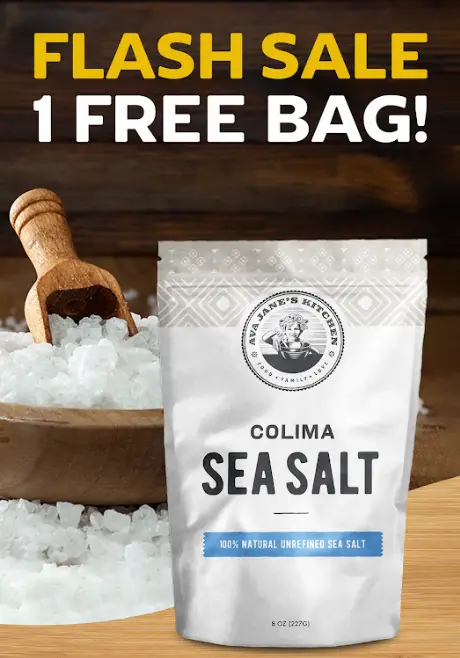While the life expectancies of United States residents still haven’t climbed out of the 70s yet despite the most innovative and effective emergency medicine system in human history, there are many places across the world where people commonly live well into their hundreds without “modern medicine.”
These cultures were studied and their secrets were chronicled in the book ’50 Secrets of the World’s Longest Living People’ by Sally Beare.
The main locations studied for the book included: Okinawa, Japan, where heart disease is virtually unheard of; Symi, Greece, where the Mediterranean diet’s health-giving effects are on full display; Campodimele, Italy, the “village of eternal youth;” Hunza, Pakistan, where mineral-rich water and soil and the health benefits of apricots and apricot seeds contribute to amazing longevity; and Bama, China, which has minuscule rates of heart disease and cancer.
These societies have a lot in common in terms of their diets and ways of life, but a handful of the things they do would be considered surprising to many people.
Here are five of the most surprising things I noticed about these societies according to the book:
1. Carbs are Widely Consumed (But Not in the Same Form)- Low-carb diets, whether “paleo” and centered around grass-fed meats, or vegan/vegetarian and centered around a ton of greens or fruits, have become quite popular among progressive healthy eaters in America and other developed nations these days.
But for many of the world’s longest-living people, ancient forms of bread and other grains including rice, corn, amaranth and more are staples.
The difference between the grains we eat and the grains consumed by members of these societies is all in the preparation. Grains are soaked, milled, sprouted, rolled, fermented, and/or cooked thoroughly to remove all of the omnipresent anti-nutrients in these and other grains.
This is in stark contrast to in the United States where chemicals are used to speed up the baking process in virtually all bread on store shelves. Most breads also contain harmful dough conditioners like azodicarbonamide, the harmful “yoga mat chemical” that has previously been used by Subway and is still in many store bought breads.
While many people are going grain free to eliminate these and other nasty additives from their diet, it might be time to wonder if we should all start asking for more true “old world style” bakeries.
2. Far Less Meat Consumption- While the stereotype is often that many ancient or traditional societies eat lots of meat, the truth is that most people in the longest-living societies of the world, especially in warmer climates, view meat as something to eat on special occasions and/or in moderation.
Meat is eaten only about once per week in these cultures on average according to the book, and more parts of the animal are used so that waste is minimized. Meat is more often used as a broth for large, flavorful vegetable soups than eaten directly.
And of course, the animals are treated far better and live longer, fuller lives, helping to tend the land and providing companionship.
3. Consider the Source- Speaking of meat, perhaps the most surprising fact in the entire book is that what is considered by many to be the longest-living group of people in the world, the Okinawans, eat pork as one of their favorite meats (they also consume fish).
Pork is often believed to be unhealthy and considered unclean by many religions and sects across the world; therefore it is typically not eaten by many of them.
While Okinawans do not eat pork and meat in general nearly as much as people in developed nations do, their use of this animal that has been deemed unhealthy is a lesson in sourcing when it comes to consuming animal-based foods. The pork consumed by Okinawans is from pigs that have been allowed to roam free, digging up root vegetables and eating a diet far healthier than virtually all of the cows or chickens in the United States consume. That makes a huge difference.
Whether you choose to consume meat, dairy, or even are on a vegan diet, the source of your food is extremely important, and totally under-appreciated these days. Most people are not willing to look deep enough to see where it really comes from. Food grown in healthy soil begets healthy minds and bodies, and animals fed a healthy diet produce healthier food as well.
It really makes sense when you think about it: what seems healthier to you, a cow that’s been gorging itself on GMO corn confined to a feedlot or a wild pig that’s spent its days digging up organic vegetable gardens?
4. Alcohol- Yay or Nay?- Another interesting fact about the world’s longest-living people is that they all traditionally consume some sort of alcohol.
The benefits of red wine and other similar drinks have recently been the subject of a lot of research, although some people deem these drinks unnecessary.
Alcohol also can cause severely negative effects both on the human body and on society when not consumed responsibly, as we all know.
But there seems like there could be some sort of benefit to consuming it in moderation as all of these societies do (some more than others). Even the Hunza, considered a “liberal Muslim” society in Pakistan, consume the occasional alcoholic beverage, which is just one of the many surprising facts in the book.
5. Aging is Celebrated, Not Feared- “How old would you be if you didn’t know how old you are?” That is the question asked by several motivational pages on Facebook via a popular quote graphic.

An Okinawan man joins a parade on his motorcycle as part of a celebration of his 96th birthday. PHOTO: Ryuku Shimpo
While aging is feared in Western societies, it’s often celebrated by the longest-living people in the world. Among the Okinawans, for example, elderly people are paraded around the streets in celebration of their “achievement” of turning a certain age.
In the Mediterranean societies listed in the book, older people continue to live with vigor and optimism into their 100s, partaking in physically active chores, visiting friends, maintaining romantic relationships, exploring new hobbies and much more.
They also are far better taken care of in these societies, staying at relatives’ houses for life as opposed to in America for example where the elderly are shuttled off to retirement homes to live in obscurity.
Because everyone in these societies has the ability to look forward to the latter days in life rather than to fear them, stress is minimized and life continues on, carefree and a cause for celebration every day, the way it was meant to be.
It’s no “secret” to say that our own societies have lost their way, but hopefully we can learn from people like these and begin to create our own “blue zones” every single day and with every single action we take.
Thanks for reading!
P.S., You can subscribe for more articles like these (and get a free eBook on the healing secrets of the Amazon Rainforest) by clicking on this link.
Thanks for installing the Bottom of every post plugin by Corey Salzano. Contact me if you need custom WordPress plugins or website design.












